Can a Woman Be Too Presidential?
Election Watch Week 9: In which Kamala dazzles, Trump decomposes, and yet some still “don’t know.” Plus: One meme reminds us of what Trump is really about. And more.
Tuesday night’s debate can be summed up in two clips and one meme:
Facebook took this meme down—I guess because it refers to “killing” and their algorithm can’t distinguish the metaphorical from the literal—but it was one of my two favorites of the day.
It does so much: pokes at the absurd but frequently repeated notion that Democrats would legalize abortion up to and even after birth (otherwise known as murder), immortalizes the moment when Kamala strode across the stage to an already retreating Trump and declared her confidence and authority (and how to pronounce her name) with a firm handshake, and reduces the man who would be king to a squirming “baby”.
Kamala was masterful. Trump fell apart. Commentators remarked how “unhinged” he became after she called his rallies “boring” and how “presidential” she looked.
But maybe some people got a little cringy about that?
Potential voters can be divided, roughly, into three categories: Those who will vote for Trump no matter what he does, those who would happily cast their vote for Kamala tomorrow, and that group that tv people love to interview before and after a debate: the “undecideds.”
SNL, ten years ago, and as fresh as ever:
It’s hilarious, but in the case of Trump v. Kamala, David Sedaris’s 2008 New Yorker piece is more apt:
“To put them in perspective, I think of being on an airplane. The flight attendant comes down the aisle with her food cart and, eventually, parks it beside my seat. ‘Can I interest you in the chicken?’ she asks. ‘Or would you prefer the platter of shit with bits of broken glass in it?’ To be undecided in this election is to pause for a moment and then ask how the chicken is cooked.”
I hope I’m not insulting anyone reading this but the “after debate” responses of the “undecideds” really had me (and a lot of others) gobsmacked. One young woman in particular, interviewed by MSNBC’s Jacob Soboroff, was disturbing:
“I really wanted to like her. I DID like her. But I still don’t know….”
Interviewer: “What’s holding you back?”
“I don’t know.”
Eventually, after some prompting from an older “undecided,” this young woman said she wanted “more detail” about “policy.”
Now: I understand that some people feel they still didn’t know enough about Kamala Harris. I’ve followed her since the 2019 Democratic primaries. I was a member of the original “KHive” and we knew a whole lot about her that wasn’t captured in the corporate media’s inadequate coverage. So I get those who are just now catching up.
BUT: There was another person at this debate, remember? And his idea of “detail” (in this case about a health care plan to replace Obamacare) was “I have concepts.” (“Concepts that you’ll be hearing about in the not too distant future”—How many times have we been told about Trump’s ever-receding “not too distant future.”?)
Trump also attempted to justify the claim that Haitians were eating people’s pets (which I’ll return to later in a more serious vein) because he’d “heard it on television.” (Oh, well in that case…)
It’s mind-boggling. But I don’t like having a boggled mind, and actually want to know what’s going on that made it possible to watch that debate—not as a diehard Trump supporter, but an “undecided”— and still consider Trump as a viable candidate for the presidency.
So I posed the question non-rhetorically to friends on Facebook and Substack.
Some generous souls defended the “undecideds” need for “more time to move from open to sure.” Others felt some weren’t really undecided after the debate but for whatever reason didn’t want to declare themselves on national tv. Others felt that they weren’t undecided to begin with but MAGAs sneakily “passing” in order to get tv attention. My husband Edward said that even though they might have been theoretically “undecided,” they may have had habitual Republican preferences that held them back from the conclusion that—gasp—they might actually have to vote for a Democrat. Many said simply: Racism and Sexism.
Racism and sexism aren’t so simple, though, when it comes to Kamala Harris. In my first 2024 “election watch” stack, I quoted my response to a question Politico posed to a bunch of us gender mavens. “Is American Ready for a Woman President?” Politico asked. I began my answer with:
“The biggest obstacle any woman has faced and will continue to face in aspiring to the highest office in any country, at any time in history is that she is not a man. I know—duh. But the reality is that we haven’t yet begun to comprehend, let alone address, everything that flows from that seemingly simple fact. French philosopher Simone deBeauvoir remains the expert on it. In every era, in every culture, she pointed out, Man is the norm, and Woman is defined in terms of her difference from that norm. She may be reviled, she may be revered, but she is always judged by standards that are “special” to her sex, while the fact that men have a sex, too, goes unnoticed.”
A tour of magazine covers shows how thoroughly our images of what makes someone “presidential” (or aspiring presidential) are full of codes for masculinity. Some are Western (Reagan, Beto) some “Working-class” (shirt-sleeves rolled up: Joe and Bernie) some are “Classy” (Obama and, when he isn’t on a horse, Reagan.)
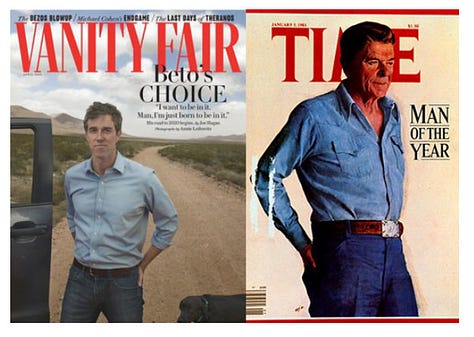
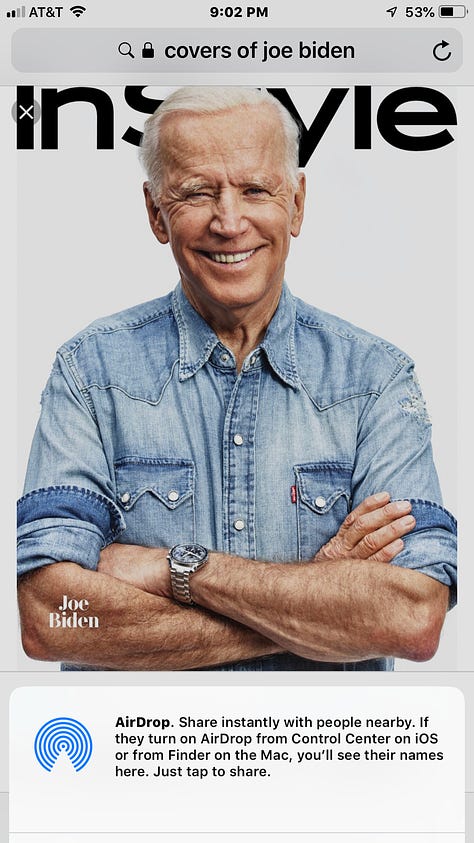

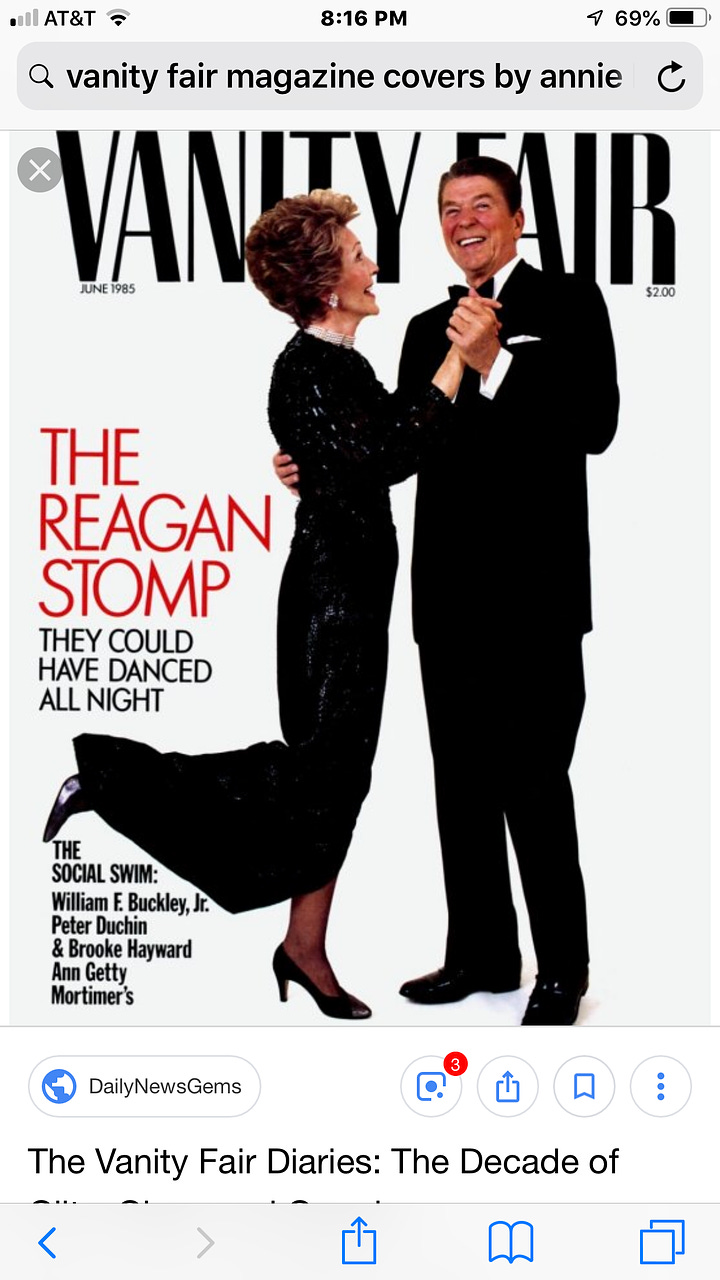
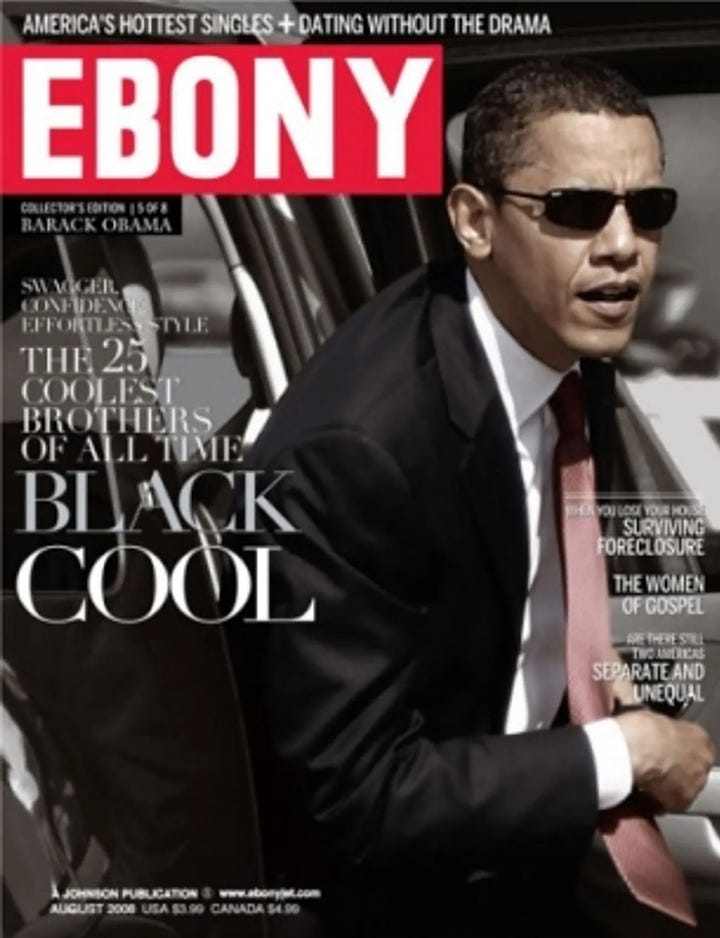
Women leaders or aspirants to leadership are also coded as masculine, because leadership is imagined as male. But on women, maleness is translated to stern, humorless, even scary— an indication that the role of leader requires stepping outside our female natures, relinquishing any “feminine” softness, any playful appeal. And then, of course, we risk become “unlikeable.”
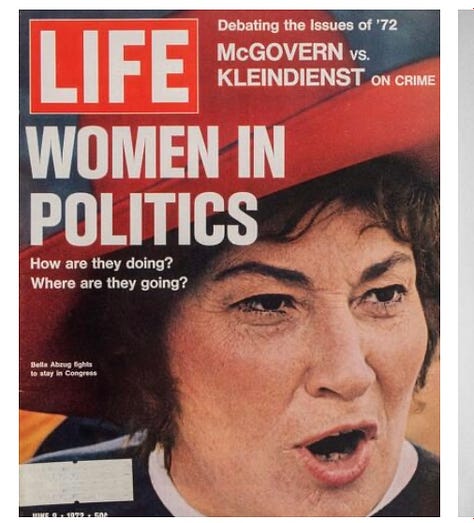
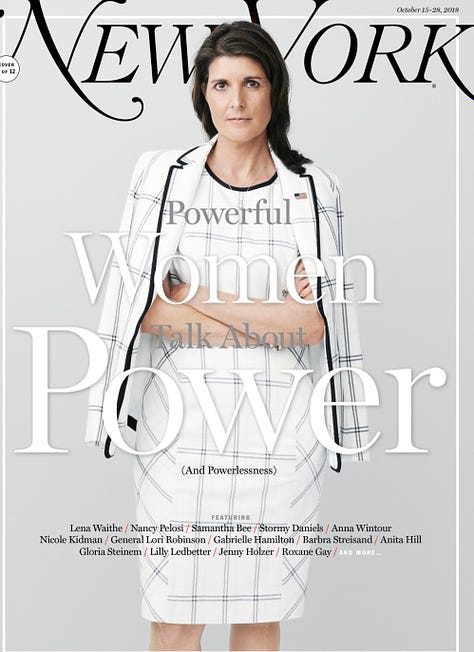
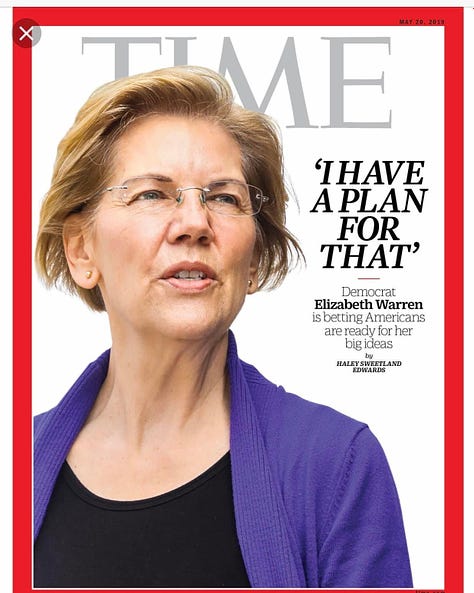

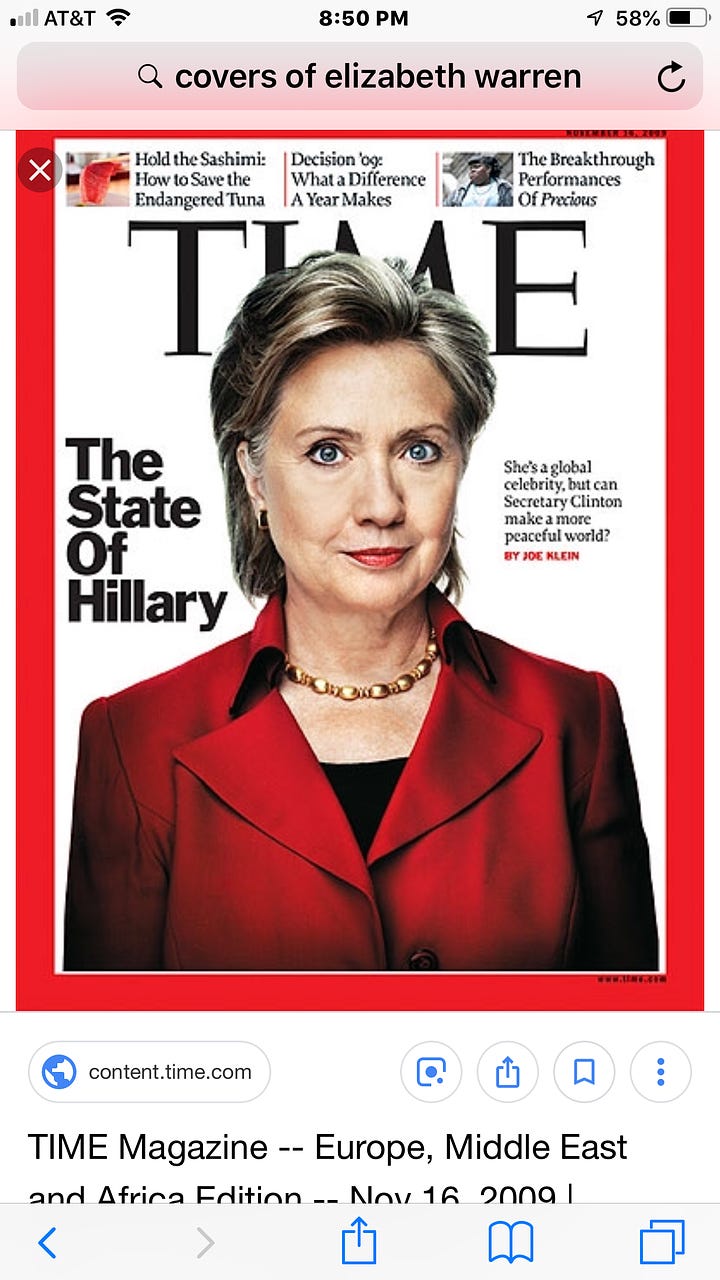

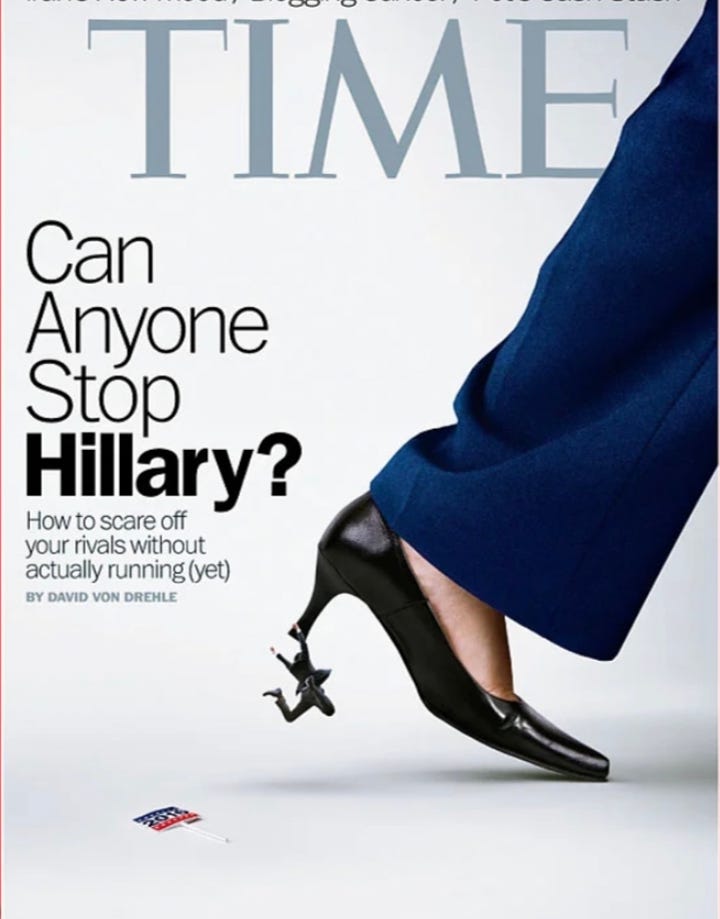
I could do a deconstruction of every one of these covers—both text and imagery—but you can have more fun (if you can call it “fun”) doing it for yourself. The point I’ll make here is that Kamala Harris, “joyful warrior” that she is—even in debate with Donald Trump!—resists having her femaleness and her playfulness erased but at the same time projects an authority that—for centuries!!—has been assumed to be “natural” to men and a distortion when embodied by a woman. Kamala defies that zero-sum-game, that necessity to choose between being all the things women have been associated with (nurturance, flirtatiousness, tenderness) and the power and authority associated with men as leaders.
Ironically, the “naturalness” of male authority is what allows male leaders and aspirants to power to be playful without being taken less seriously. Reagan and Obama—probably the most playful of our presidents—were able to poke (“There you go again….”) and joke (“He has this weird obsession with the size of crowds”) without any loss of stature. Women aspirants, in contrast, risk being trivialized if they do a charming little dance outside their offices (AOC.)
Kamala Harris blasts through that classic double-bind. It delights those who adore her, but confounds those who don’t know what to make of her, who have never seen anything like it (“I did like her. But I still don’t know.”) And, like that young woman, many are relieved when they are provided with an excuse to return to their comfort zones (“I need to know more about her policies.”) “Policy,” I suggest, is imagined to be what a serious male contender would prioritize. (Unless, of course, he’s Trump, who gets away with an unspecified “concept” to be detailed “in the not too distant future.”)
Some are puzzled. Others are outraged, because Kamala dared, throughout the debate, to employ both playfulness and the authority that she emanates to cut the size-obsessed Trump down to size. And she accomplished that even if you turned the sound off. I hope that Sean Codger won’t mind my posting his captions for her range of expression:

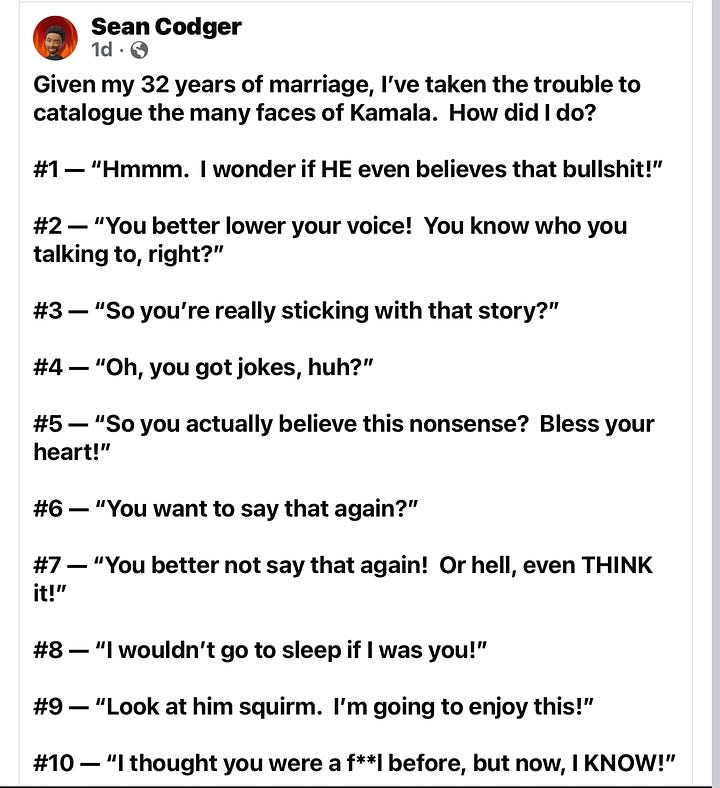
If this was a chapter in a book rather than a stack that I don’t want to load down with too much analysis, I’d go on to discuss how being a Black woman—and Black history and culture—has played a significant role in presenting us with the first female presidential candidate to so effectively challenge the double-binds that have burdened previous women aspiring to leadership. That doesn’t mean, of course, that she isn’t going to be faced with both racism and sexism throughout her campaign. It means she’s got remarkable skill at disarming and disabling them. As Donald Trump, to his chagrin, has been discovering.
Yes, he’s 78. But he’s always been nuts.
I don’t believe—as the woman in the “Ensure” commercial has been saying (for about 5 years now, during which I suspect she’s actually gotten older)—that “age is just a number.” I’m 77, and I can attest that I can’t bounce out of bed in the morning as I used to, and that people’s names often enter a black hole, sometimes emerging again unexpectedly in the middle of the night. On the other hand, my intellect is at the top of my game—and blessedly unencumbered by the stubbornness and pretentiousness of my youth. I’m a better writer, a better public speaker, a nicer person.
Aging is real. But its effects vary enormously from culture to culture and from person to person—which doesn’t distinguish it much from any other stages in life. “Young” doesn’t automatically confer physical adroitness and it certainly doesn’t insure superior knowledge.
Donald Trump’s word salads have definitely gotten more like chopped salads since he re-entered the public arena to run for president and he suffers more from the tendencies I listed in last week’s stack.1All of which could well be age-related. They could also be evidence of a narcissistic personality becoming progressively more unhinged as he faces humiliations and exposures that he has managed—unbelievably; it’s quite a talent—to avoid most of his life.
Because the press has finally begun to resist normalizing Trump’s more deranged behaviors, it’s easy to forget how much craziness he’s always gotten away with. Kamala may have been more successful than anyone before at “baiting” him, but in fact he’s never been able to stand any suggestion that he is less than king of the neighborhood. And when that’s happened, he decomposes.
Recall the intensity and. immaturity of his response when Hillary Clinton accused him of being Putin’s puppet. “No, you’re the puppet.” He said it twice. Clinton had hit the hot spot of Trump’s vulnerability with the suggestion that he was being pushed around by someone tougher and smarter. She may as well have said “Vlad has got you by the short hairs.” That was unbearable to Trump, and the fact that his response was pathetically off-the-mark (Putin hates Clinton and did everything he could to see that she was defeated) was lost to him in the immediacy of his need to punch back (with a projection onto his enemies of his own weakness, his usual technique.)
We’ve seen this over and over again. During his first presidential campaign, the fragility of Trump’s ego was exhibited when Gold-star father Khizr Khan offered to lend Trump a copy of the U.S. Constitution (to remind him that religious freedom was a basic tenet of the Founding Fathers) and charged that compared to the loss of a son, Trump had sacrificed “nothing.” Trump’s response was to say that he had sacrificed plenty by running thriving businesses and (nyah, nyah) to insult Khan as being less of a man because he talked while his wife remained silent.
The Kahn episode, some might remember, had pundits questioning the state of Trump’s mental health. On MSNBC a few days later, Joe Scarborough said he’d “fielded calls all day yesterday…[and] everybody was asking about his mental health.” Gene Robinson of the Washington Post, wrote a column called “Is Donald Trump just plain crazy?” The prime-time talk shows featured psychological experts outlining the characteristics of narcissism and ticking off their application to Trump.
And then: They. Forgot. All. About. It.
A skin so thin and manhood so fragile as to be unable to endure any hints of less-than-perfect potency seems intrinsic to Trump’s personality, and has been evident long before his run for presidency. He wasn’t even able to laugh at the correspondent’s dinner, when Obama called him out for his birther obsession, but worse, made fun of “Celebrity Apprentice.”
A man who gets psychologically roasted by a roast — and doesn’t even have the ability to hide his upset from the camera — is not so different from the man we saw at the debate. The difference is one of greater discombobulation, inability to recover “face,” and more cognitive disorder. But perhaps even more important is the way overdue willingness of the corporate media to call it out rather than gloss over it.
This piece by Jess Bidgood is interesting, and I love the headline. But for me, it raises a question that the piece doesn’t address, which is: Why haven’t we seen Trump described in this way by commentators?
If he’d been a woman acting the way he had, wouldn’t they all be asking it? From the ancient Greeks on, we’ve been identified as less in control of our emotions, more ruled by the passions than by reason, and not qualified to rule because of that.
Instead, they’re talking about how skillful Kamala was in “baiting” him.
She was indeed very skillful at that.
But that takes the onus off his lack of emotional control—something that would be all over the headlines if Kamala had lost her cool the way he did, even just one time, in the debate.
Commentators (including me) are now describing him as becoming “unhinged.” Which is true. But I’d suggest that whatever “hinge” has supported him in the past was always a slender bit of equipment.
One Meme Reminds Us of What Trump is Really About
When I reposted this meme (hope that’s ok, Mercy Morganfield) I got an amazing number of “likes” and comments affirming—with intensity—the truth of its claim.
It was kind of startling—because there was a time when the meme wouldn’t have been greeted like an overdue “wake-up call.” It was obvious from the moment he came down that golden escalator and began ranting about building a wall at the Southern border that Trump is a racist. And not only one himself, but one who unleashed the suppressed fury of what Hillary Clinton correctly called the “deplorables.”
But then, the magnitude of Trump’s lies and blatantly illegal crimes became hotter news than his racism, and the felon and election-denier bumped the hater out of the headlines.
I suspect Trump himself, at the beginning of his first run, was genuinely surprised at how voraciously his supporters gobbled up the permission he gave them to let loose with the purest, most vicious rancor against the takeover of White America by Black people, brown people, and the “libs” who had and were allowing it.
Recall that the line that drew the most whoops of delight during the first Republican debate was Trump’s take-down of “political correctness” as the ruin of the culture. Yes, we needed to build a physical wall against the immigrant invaders. But even more potent in Trump’s appeal was the encouragement to tear down the cultural wall: the prohibition against being anti-immigrant. The “culture war” touches deep recesses of resentment, the frustrations and angers that go back to being a child not allowed to do and say “bad things.” You don’t have to be good little boys and girls, someone was finally saying. Say what you feel, do what you feel like, don’t let the goody-two-shoes liberals (read, during the 2016 election, mama Hillary) boss you around.
In this way, Trump’s relationship with his supporters got at their most infantile desires, a release of the fury of the Id and a “fuck you” to the parental Ego—the government, the educational system, the establishment press—that taught that racism and sexism weren’t “nice.”
It was a new use of the old Roger Ailes playbook for Fox: Create a station devoted to sympathy for and identification with those huge audiences alienated by the “coastal” elitism of stations like MSNBC, which Ailes argued, “left a lot of America on the outside.” Don’t let them look down on you. Don’t let them convince you there’s something wrong with you because you’re angry that your child has to learn about the “evil” of slavery and white supremacism. Call those “socialist,” “baby-killing’, “defunders of the police” out for what they are.
Ailes also created a blueprint for Fox according to which lying is irrelevant. Scaring voters about your opponents and endlessly repeating the lies that scare them is what works. And that’s what counts.
None of that ever went away. But as the Trump trials and Trump’s openly authoritarian ambitions began to take center-stage, words like “felon” and abstractions about the “danger to democracy” allowed white liberals to forget, for a moment, what a racist hater and instigator the man is.
At first, the lies about Haitians eating the pets of the good people of Springfield Ohio was laughable. “Talk about extreme! Said Kamala, making an “I can’t believe this person” face. And when moderator David Muir debunked Trump’s claim, persisting even after Trump said he’d “seen a man on television” saying his dog had been taken and eaten, I thought it was over and done. It seemed so ludicrous that I even posted a clip from “Clueless” in which Cher defends the “Hay-tee-ins” immigrating to the U.S.
I’m not reposting that here, because after the numerous threats and the constant state of dread and fear that Springfield’s Haitian population are now experiencing, Cher’s mispronunciation doesn’t seem so funny any more.
It doesn’t matter that it’s a lie. It’s doesn’t matter that it’s the latest in a bulging catalogue of lies about “other” cultures and their “primitive” eating habits. it doesn’t matter that the Haitians now living here were encouraged to come to Springfield to fill jobs and bolster the town's dwindling economy. It doesn’t matter that the origins of the lie have been disclosed: a white woman who went crazy and killed her own cat and a non-Haitian Black man carrying a goose—both in towns other than Springfield.
He hates who they hate and that is enough.
Tangentiality: Replies to questions are off-point or totally irrelevant.
Derailment: A person with derailment talks in chains of only semi-related ideas. Their ideas often fall further and further from the topic of conversation.
Incoherence (word salad): severe lack of speech cohesion at the basic level of syntax and/or semantics within sentences
Illogicality: marked errors in inferential logic
Circumstantiality: People with circumstantiality, also known as circumstantial thinking, or circumstantial speech, often include excessive irrelevant details in their speaking or writing. They maintain their original train of thought but provide a lot of unnecessary details before circling back to their main point.
Perseveration: excessive repetition of words, ideas, or subjects
Self-reference: The patient is liable to refer the subject of conversation back to him/herself.









Simply amazing psycho-social commentary. That really is the kicker—that the bullies fomenting hate and violence in Springfield don’t care if he’s lying as long it aids and abets their cause.
I had mixed feelings about the debate:
1) I was very pleased that Kamala helped her vote tally by her display of sharpness, poise, and good judgment.
2) That this election is still likely to be very close is profoundly disturbing to me.
Susan, thank you for doing your part to help us get to the right result.
I'm hearing encouraging things about voter registration and vote by mail campaigns for groups that tend to vote less than average and lean Democratic.